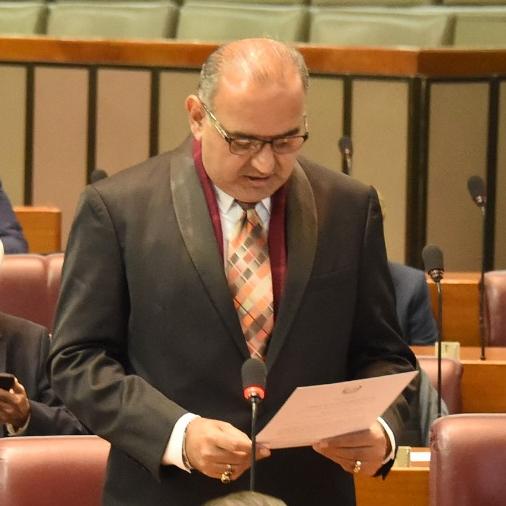Ethiopia Shares ‘Green Legacy’ Experiences at Int’l Climate Conference in Islamabad
Diplomats and environmental experts gathered in Islamabad on Wednesday to strengthen climate cooperation between Ethiopia and Pakistan, focusing on the successes of Ethiopia’s massive afforestation and reforestation programme.
The “Green Dialogue” conference, co-hosted by the Ethiopian Embassy Islamabad and Bahria University, explored shared solutions to ecological sustainability under the umbrella of Ethiopian Prime Minister Dr. Abiy Ahmed’s “Green Legacy Initiative”.
Opening the session, Chalachew Eshetie, Chargé d’Affaires (ad Interim) of the Ethiopian Embassy Islamabad, highlighted how the initiative has mobilised his nation to plant more than 48 billion seedlings—ranging from fruit trees to coffee plants.
He noted that the programme has been pivotal in averting land degradation and ensuring food security, urging Pakistan to adopt similar “climate-positive actions” to bolster its own resilience against environmental shocks.
The Chargé d’Affaires specifically appreciated Prof. Dr. Adam Saud (Dean FHSS) Bahria University, and Dr. Muhammad Fahim Khan and Dr. Tehseen Zahra for their initiative of organizing and coordinating the summit.
The summit also addressed the tension between development and nature as Director General of Bahria University Rear Admiral Naeem Sarwar warned that human activity and unchecked technological advancement remain the primary drivers of environmental damage.
However, speakers also showcased how technology can offer a lifeline when Secretary General of the Chongqing Renewable Energy Society in China Mr. MaDing Ping, presented a “Green Entrepreneurship Starter Kit” for youth.
He cited examples from Chinese cities where drone-based agricultural monitoring and solar-powered infrastructure have revolutionised local economies, suggesting similar models could boost green productivity in South Asia.
The urgency of the situation for Pakistan was underscored by Vice Chancellor Tariq Mehmood of the University of Narowal. He warned that Pakistan is operating in a state of “high fragility,” facing rising heatwaves, flash floods, and biodiversity loss.
He underlined the need for a shift from reactive to proactive governance, urging policymakers to address socio-economic disparities and invest heavily in climate finance.
Experts from the Sustainable Development Policy Institute (SDPI) and Bahria University’s Centre for Research Excellence also contributed to the dialogue.
The conference concluded with a consensus that environmental well-being transcends borders, requiring urgent cooperation between governments, academia, and local communities.



